Through their advocacy, volunteering and fundraising, the Promoters of Plymouth (PoP) are helping our community get more involved in the homelessness crisis.
If you’re someone who cares about addressing homelessness but aren’t sure how to get involved, you’re not alone. For many of us who live in Seattle or the Pacific Northwest, the image of people living in tents is part of daily life. How can our community solve a problem that sometimes feels unsolvable? How can we bring more empathy and compassion to addressing this crisis? These questions are familiar to Brenda Baxter, Jaden Lambros, Alena Owen and Sara Umeda. As members of our young professionals group—Promoters of Plymouth—they have found a way to channel their concern into action. Learn more about why they’re passionate about Plymouth’s approach to ending homelessness, and how you can get involved.
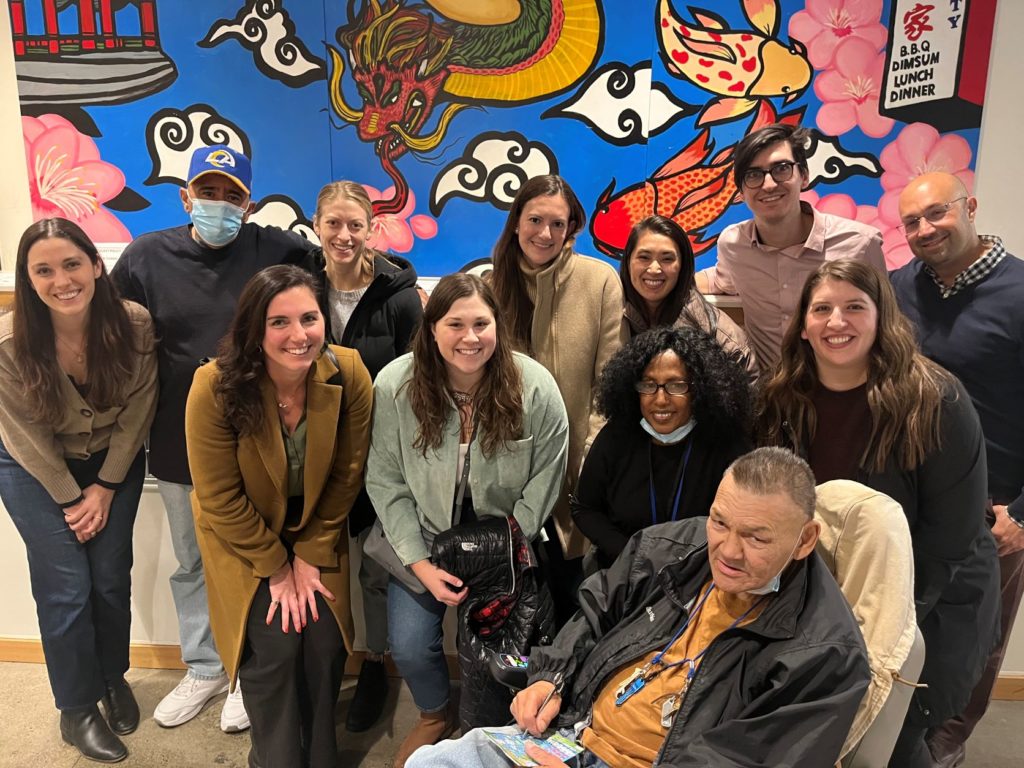
Promoters of Plymouth join Plymouth staff and residents at a building volunteer opportunity.
Why are you passionate about trying to help the homelessness crisis?
“Adequate housing is a basic human right and plays a huge role in a person’s success in life. I am passionate about ending homelessness because I am passionate about people having equal rights and equal access to everything they need to be safe, healthy, and live a fulfilling life.” – Alena Owen
Why did you get involved with Plymouth Housing?
“I got involved in 2018. At the time I commuted to work every day on public transit via Third Avenue and walked to my office on Fourth Avenue. I witnessed so many individuals struggling. I saw people without homes–without food and water. This was in front of me every single day. I could no longer be complacent about homelessness. It is our obligation as members of this city and community to participate in the solution. It’s our responsibility to help each other.” – Brenda Baxter
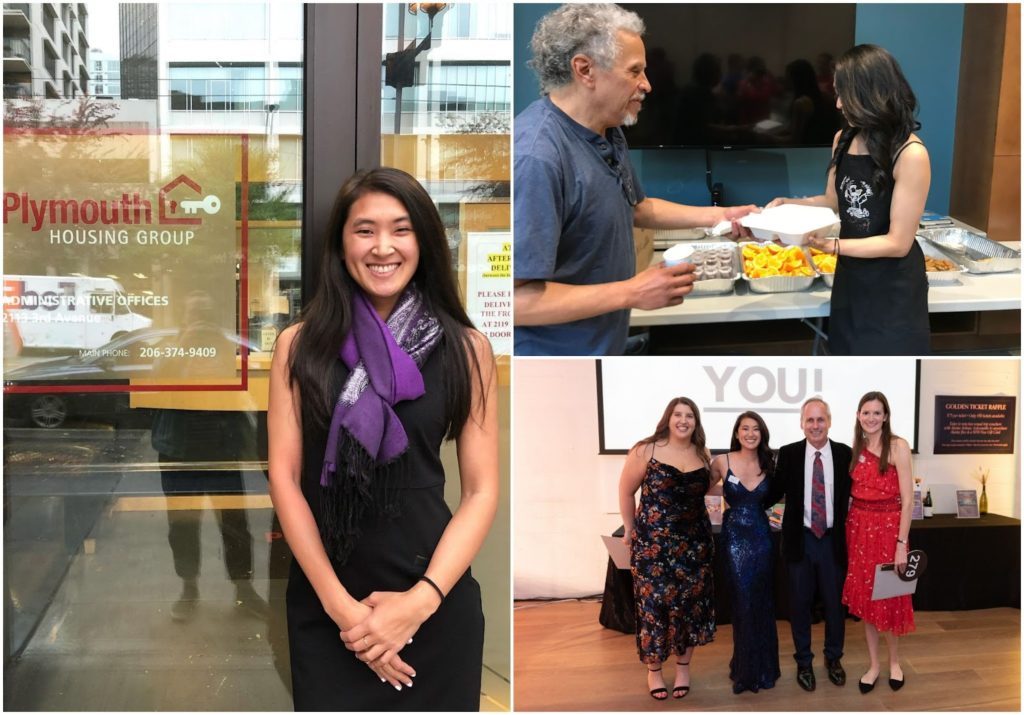
Sara Umeda in front of Plymouth Housing, volunteering in a building and attending the 2022 Pop Some Tops Gala with fellow committee chairs and former Plymouth CEO Paul Lambros.
There’s so much fatigue for addressing homelessness in our region. What helps you stay motivated to continue your work?
“I stay motivated because it will never be OK for someone to be living unhoused. I want to see this solved in our region. I am also so inspired by the work that Plymouth is doing. For as much as the issue has grown in recent years, I’ve had a front-row seat to Plymouth’s advances, as well. When I worked at Plymouth just a few years ago, they could open a building about once every two years. This year alone, they will be opening three. They’ve expanded beyond the downtown core to Ballard, and soon to Bellevue. I’m so encouraged. And it’s not just the quantity of buildings—they continue to better their services and how they show up for their formerly homeless residents.” – Sara Umeda
What’s the biggest misconception about homelessness that you’ve observed?
“Just because someone is living outside or living in a tent doesn’t mean they have done something wrong or bad. There are so many factors that contribute to a person’s housing status: unexpected health care expenses. Living with a disability or mental illness. Loss of a job due to our unstable economy. Many of these challenges are not controllable or avoidable.” – Alena Owen
“One misconception is that people experiencing homelessness should be grateful if they are given food, drinks, or other donations. If you’re the one giving, it can feel great to provide someone food. But we all have allergies and preferences–whether we’re housed or un-housed. It only takes a little time to ask someone about what they would actually like.” – Jaden Lambros
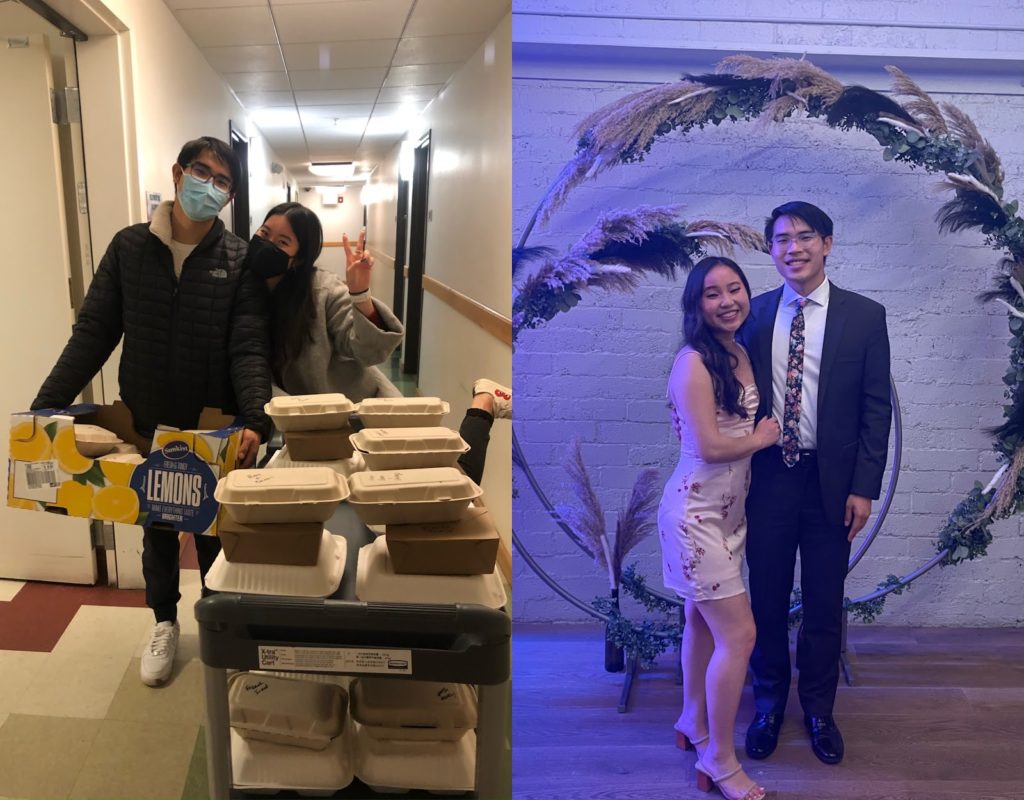
Jaden Lambros enjoys volunteering with the Promoters of Plymouth.
In your opinion, why does Plymouth play an important role in ending homelessness in our region?
“Plymouth takes a Housing First approach, which means residents receive more than just shelter. They receive an actual home, a place to stay for as long as they need (could be years, or forever)—in addition to on-site medical services and other types of support to help them rebuild their lives. This is what makes Plymouth truly special. Plymouth considers the life of each person holistically, rather than taking a band-aid approach.” – Alena Owen
“Plymouth plays an important role because they serve single adults. Consider that 67 percent of all people experiencing homelessness in the US are individuals (70 percent men, 29 percent women, 1 percent non-binary, according to 2018 data from the National Alliance to End Homelessness). Plymouth does a great job providing resources and more–not just housing. They create partnerships with different hospitals and organizations to provide residents with the help that they need.” – Jaden Lambros
What do you want people in the Pacific Northwest to know about homelessness?
“I want people to know that a large percentage of the homeless population that Plymouth helps–that you might not always see–are people who have disabilities and mental health disorders. Many of them are also seniors and veterans.” – Brenda Baxter
“I want people to know that it’s OK to learn and ask questions about homelessness, mental illness, and substance use disorders. I don’t want these things to be too taboo to talk about. I want people to see the human who is experiencing an unfathomable situation. And I want people to understand how close we all are to this issue. These are our neighbors–this is our community. And so I hope we take some ownership in getting to a solution.” – Sara Umeda
What’s one thing you can do to get involved in addressing the homelessness crisis?
“Use your voice to advocate for more permanent housing and supportive services. Volunteer your time. Donate and vote.” – Sara Umeda
“Everyone can get more involved by having immense amounts of compassion and empathy, above all. Also, talk about homelessness openly, change the dialogue!” – Brenda Baxter
“One of the biggest things you can do is to host food/clothing drives. Being able to make an immediate impact is one of the easiest and quickest ways to help your community with homelessness. Consider providing needed items from Plymouth Housing’s Wish List. You can also volunteer! (To volunteer at Plymouth, email Community Engagement Manager Blake Owens at bowens@plymouthhousing.org).” – Jaden Lambros
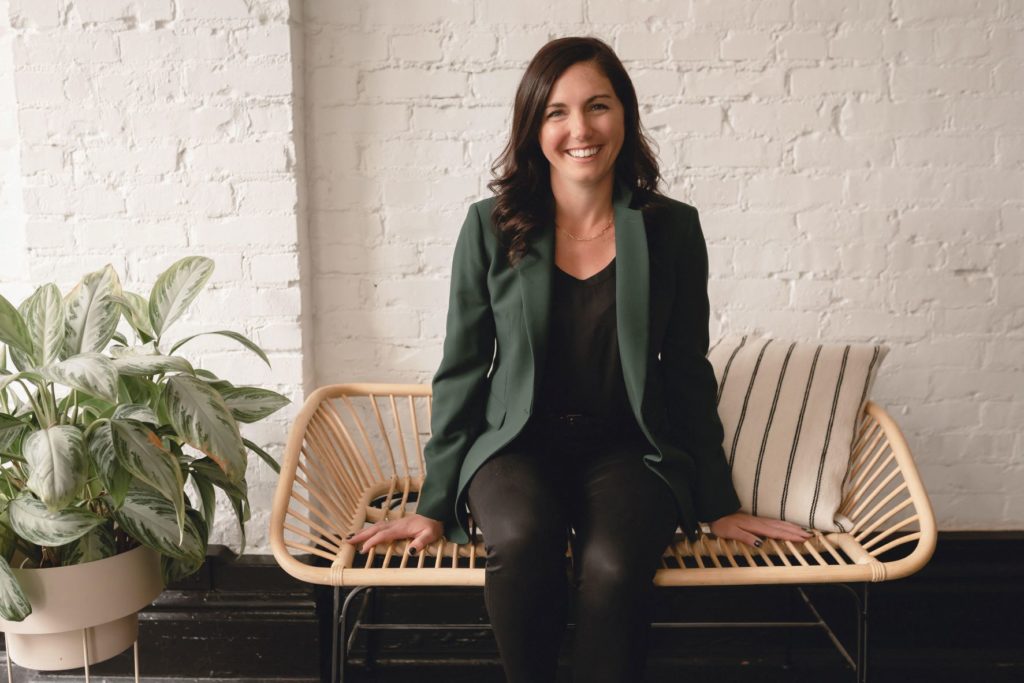
Brenda Baxter is passionate about advocacy to end homelessness.
Tell us more about your upcoming event—Pop Some Tops on June 9. Why should people attend?
“I’ve been to many fundraising events in my day and PoP Some Tops is definitely not your average fundraiser. It’s a night to celebrate the great work that’s being done to end homelessness. You get to meet other people who are equally as passionate, dance, eat, and of course—raise some money. I would say to anyone who is curious about learning more about what Plymouth Housing does, PoP Some Tops is a great place to start!” – Alena Owen
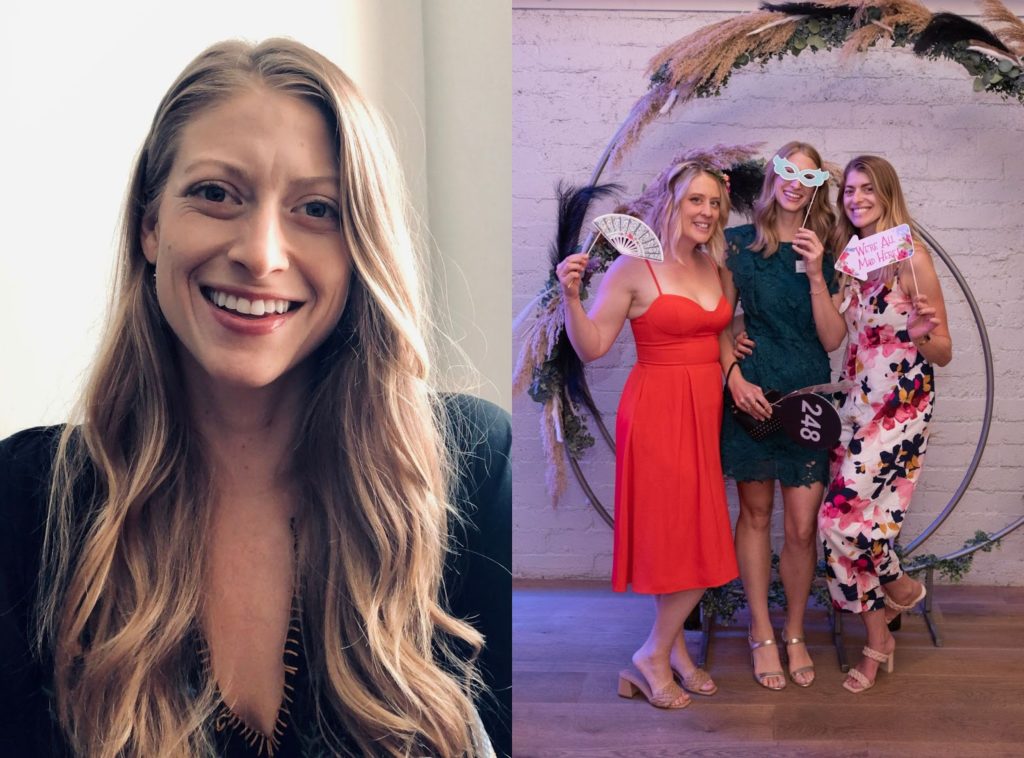
Alena (left and center) at Pop Some Tops is proud to volunteer with Promoters of Plymouth.
“Pop Some Tops is such a fun way to make an impact. This event—like other Plymouth fundraisers—strikes the right balance of being unique, fun, and mission-focused. The PoP Committee gives a lot of our time and effort to planning this event for much of the year. The gala is a culmination of so much hard work and passion. Every year, I’m inspired by the generosity of the committee and our broader network in attendance. Whether you’re new to Plymouth’s work or a seasoned supporter, there’s always something to take away from this event: learning, connections, inspiration, and hope.” – Sara Umeda
Final thoughts?
“One statistic that has stuck with me is just how much it costs to keep someone off the streets: 10 weeks in jail or 16 days at Harborview could house someone at Plymouth for a year. We should think about this: How many dollars and resources could be saved by Plymouth’s approach?” – Jaden Lambros
Do you want to make a positive impact on the homelessness crisis? Attend the Pop Some Tops gala fundraiser at 7 p.m., June 9, 2023 at Block 41 (115 Bell St, Seattle, WA 98121). Learn more on the Pop Some Tops web page.